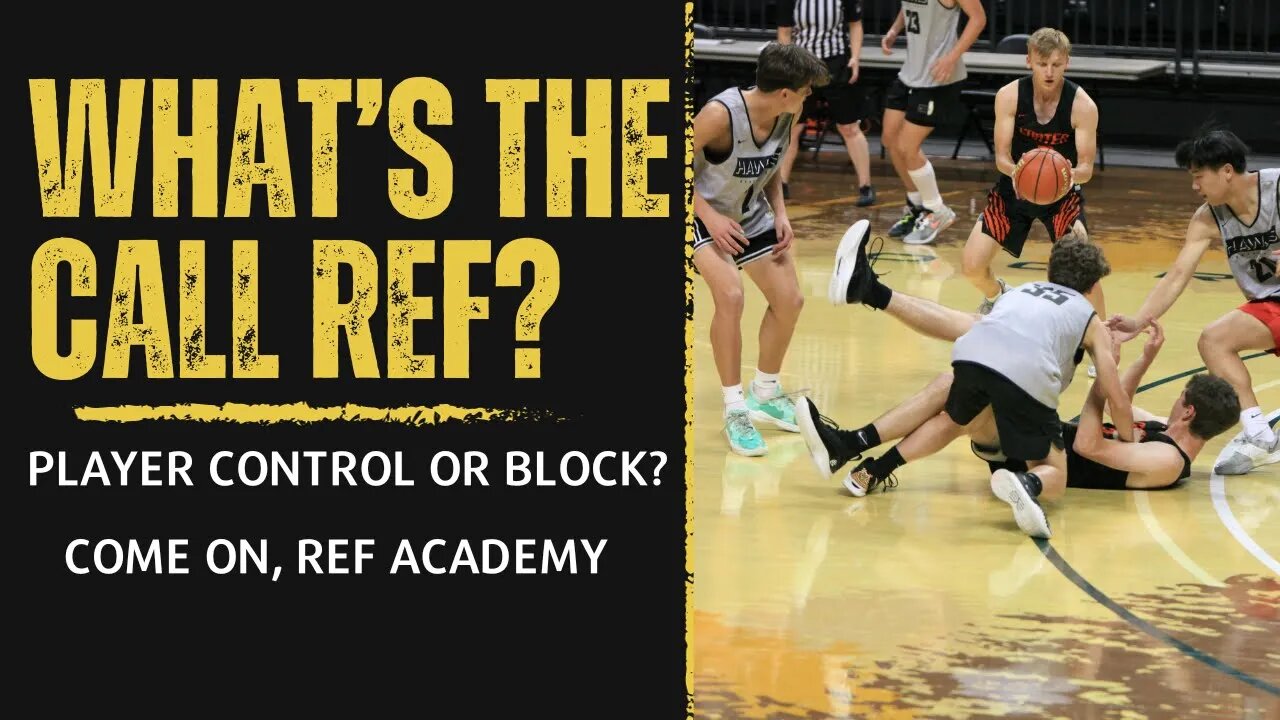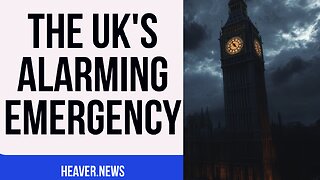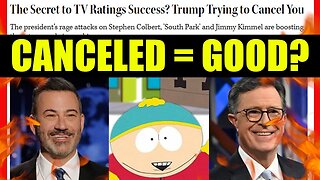Premium Only Content

You Make the Call: Player Control, Block or Let it Go!
A player control foul, often simply referred to as a "charging" foul in basketball, is a common type of personal foul that occurs when an offensive player with the ball initiates contact with a defensive player who has established a legal defensive position. The key elements of a player-control foul include:
Offensive Player with the Ball: The foul must involve an offensive player who is in possession of the basketball. This means the player has control of the ball, typically by dribbling or holding it.
Defensive Player's Legal Position: The defensive player must establish and maintain a legal defensive position before the offensive player makes contact. To establish a legal position, the defender must have both feet on the floor and be facing the offensive player. The defender cannot move laterally or forward while trying to establish this position; they must have their position established before the contact occurs.
Offensive Player's Responsibility: The offensive player must avoid charging into the defender once they've established their legal position. Charging occurs when the offensive player uses their body, usually their torso or shoulder, to forcefully run into or make contact with the defender.
Offensive Foul: If the referee determines that the offensive player has initiated the contact and committed a charging foul, they will blow the whistle and signal a foul. The offensive team loses possession of the ball, and the opposing team is awarded a throw-in from the spot where the foul occurred.
Charging fouls are intended to reward defenders for maintaining their position and to discourage offensive players from using their bodies to forcefully create space or drive to the basket. The rule is in place to promote fair play, prevent dangerous collisions, and maintain the integrity of defensive positioning.
It's worth noting that the specific interpretation of charging fouls can sometimes be a subject of debate and may vary depending on the level of play and the judgment of the referees. Additionally, there are exceptions to this rule, such as when the defensive player is moving laterally or not in a legal guarding position, which could result in a blocking foul being called instead.
-

The Quartering
4 hours agoFat Soldiers BLASTED, Kirk Assassin In Court, JK Rowling Destroys Emma Watson & Crowder Takes Risk
99K12 -
 1:17:12
1:17:12
Winston Marshall
2 hours agoExposing The EU’s Plot To Destroy Free Speech in America | Mike Benz
29.6K14 -
 1:32:25
1:32:25
Sean Unpaved
3 hours agoMNF Mayhem: Doubleheader Drama, Cheetah's Crushing Fall, & MLB's October Ignition
37.9K1 -
 7:07
7:07
Michael Heaver
2 hours agoBroken UK Uncovers HORRIFYING Truth
3.96K1 -
 2:11:32
2:11:32
Russell Brand
3 hours agoGavin de Becker | Fear, Freedom & Resisting Control - SF642
169K16 -
 10:34
10:34
Clownfish TV
5 hours agoGetting 'Canceled by Trump' is GREAT for Ratings?! | Clownfish TV
12.4K8 -
 14:42
14:42
Professor Gerdes Explains 🇺🇦
3 hours agoThis ONE SENTENCE from Putin Guarantees a Long War
10.6K3 -
 19:05
19:05
Sponsored By Jesus Podcast
2 days agoI Lost the World But Gained My SOUL | Freedom in Christian Suffering
19.5K3 -
 14:47
14:47
Dr. Nick Zyrowski
15 days agoFasting Is THE Cure - NO FOOD FOR 3 DAYS Completely Heals You!
19.9K10 -
 36:08
36:08
ROSE UNPLUGGED
1 hour agoClimate Fatigue: Is the Whole World Feeling It?
10.9K2